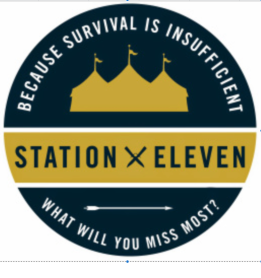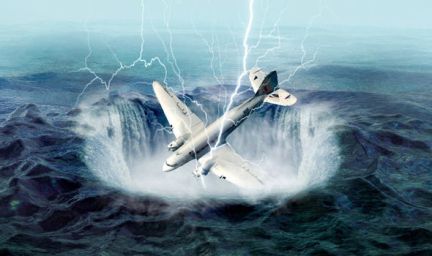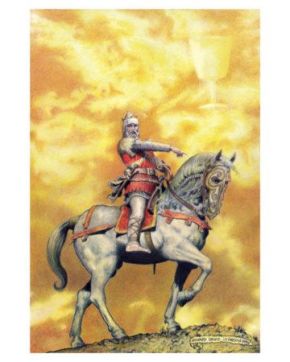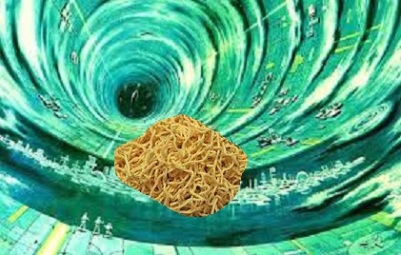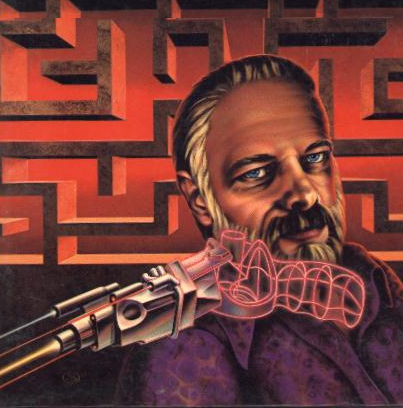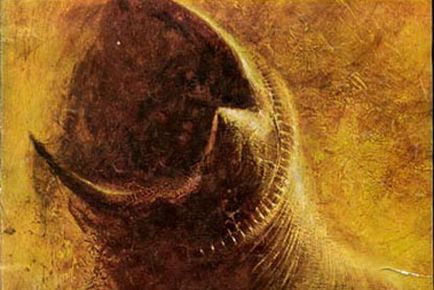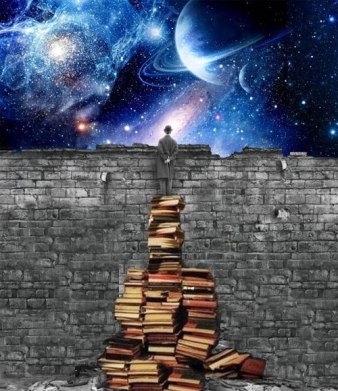
Now that 2018 is upon us, it only seems appropriate to take account of 2017’s reading. Mine, anyway. But perhaps—dear anonymous internet reader—in a yet unknown and oblique way, it will be helpful to you. And what better way to disseminate that information than a list? Because after all, isn’t New Years’ Eve all about countdowns? Also, I’ve included the entire reading list at the bottom for your perusing pleasure. So behold, my Top Ten Reading Countdown of 2017:
10) I read 61 books this year. This is higher than usual as the yearly goal hovers around fifty.
9) I read 50 fiction books and 11 nonfiction books. While the ratio of fiction to nonfiction (5:1) seems lopsided, my affinities are usually closer to a 10:1 ratio.
8) Of the 11 nonfiction books I read, six were biographies or memoirs.
7) Of the 50 fiction books I read, four were short story collections.
6) Twenty-three were Science Fiction and Fantasy.
5) Two were historical fiction. This is an aberration as historical lit is often fighting for the quantitative top spot.
4) Sixteen could be classified as “Literature.” Five were what I call ‘contemporary literature’ or popular fiction. Three were mystery/thriller.
3) I started, but didn’t finish three novels. Those were The Thirteen Gun Salute by Patrick O’Brian, Postcards by Annie Proulx (I normally love her work), and Ancillary Justice by Anne Leckie (people have raved about this series, but it didn’t catch with me).
2) The shortest book was 135 pages (The Red Badge of Courage), the longest was 782 pages (Jonathan Strange & Mr Norrell).
1) All things considered, I read a lot of mediocre books. I only felt strongly about a third of them (anything higher than 3 stars). Most, however, fell squarely on the 3-star which is to stay I enjoyed them, but you won’t catch me offering additional recommendations. So here’s to 2018, my ever growing list, and—fingers crossed—bundles of 4 and 5 star reads!
The List:
War of the Flowers by Tad Williams
The Pony by John Steinbeck
Nine Stories by JD Salinger
Jonathan Strange and Mr Norrell by Suzanna Clarke
Do Androids Dream of Electrical Sheep? by Philip K Dick
The Heart is a Lonely Hunter by Carson McCullers
The Last Light of the Sun by Guy Gavriel Kay
The Grapes of Wrath by John Steinbeck
Starship Troopers by Robert A Heinlein
The Writing Life by Annie Dillard
The Crossing by Cormac McCarthy
Housekeeping by Marilynne Robinson
Trading in Danger by Elizabeth Moon
The Memory of Earth by Orson Scott Card
The Long Ride Home by Tawni Waters
The Hitchhiker’s Guide to the Galaxy by Douglas Adams
Thriving in Babylon by Larry Osborne
Kingdom of the Cults by Walter Martin
Silver Linings Playbook by Matthew Quick
Home by Toni Morrison
World Without End by Ken Follett
Salinger by David Shields and Shane Salerno
Brothers at War by Michael Walsh
Team of Rivals by Doris Kearns Goodwin
Stardust by Neil Gaiman
Midnight Sun by Jo Nesbo
The Museum of Extraordinary Things by Alice Hoffman
Sign of the Four by Robert Conan Doyle
Methuselah’s Children by Robert A Heinlein
The Gift by Vladimir Nabokov
Brass Verdict by Michael Connelly
Just After Sunset by Stephen King
Jacob’s Room by Virginia Woolf
Shadows of the New Sun Anthology by Various Authors
The Bridges of Madison County by Robert James Waller
The Fireman’s Wife by Richard Bausch
Igniting the Reaches by David Drake
The Water that Holds Me by AR Horst
The Feast of Love by Charles Baxter
Under the Skin by Michel Faber
A Moveable Feast by Ernest Hemingway
Total Eclipse by John Brunner
Tender is the Night by F. Scott Fitzgerald
Non-Stop by Brian Aldiss
Let’s Explore Diabetes with Owls by David Sedaris
Brave New World by Aldous Huxley
Make Room! Make Room! by Harry Harrison
Feynman by Jim Ottaviani and Leland Myrick
Gentlemen of the Road by Michael Chabon
From Eternity to Here by Frank Viola
Gardens of the Moon by Steven Erikson
Firefight by Brandon Sanderson
Old School by Tobias Wolff
The Red Badge of Courage by Stephen Crane
Timescoop by John Brunner
The Adventures of Robin Hood by Roger Lancelyn Green
American Gods by Neil Gaiman
We Have Always Lived in the Castle by Shirley Jackson
The King by Donald Barthelme
The Greatest Thing Since Sliced Bread by Don Robertson
The Anubis Gates by Tim Powers
